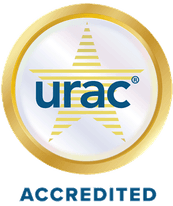Big Health’s Threat to Community Pharmacies & Why it Matters
Written by
SmithRx
Jan 9, 2024
Independent community pharmacies have always been about more than just medicine. They're where you're greeted by name, where your health history is known, and wherepersonalized advice is the norm. These pharmacies stand out for their ability to adapt quickly to the community's needs, be it a sudden health scare or a steady demand for specific services. They’re threads in thelocal fabric, supporting the neighborhood economy and providing jobs to members of the community. Their significance extends beyond health; they are integral to the community's identity and well-being.
As of 2019, independent pharmacies represented 35% of all retail pharmacies, according to the National Community Pharmacists Association's (NCPA) 2020 Digest. These pharmacies offer a wide range of services, with 79% providing medication synchronization services, 79% offering medication therapy management, 77% offering flu immunizations, 73% providing non-flu immunizations, 54% performing blood pressure monitoring, and 53% supplying durable medical goods. In addition to these services, independent community pharmacies are also actively involved in philanthropy, with 58% of pharmacy owners donating to at least five community-based organizations.
The rise of large healthcare conglomerates, however, is reshaping this landscape in a way that diminishes these neighborhood health hubs. While certain modern innovations are certainly beneficial, such as digital ordering and telehealth—particularly when mobility issues come into play–Big Health isn’t out to complement; it intends to consolidate and control the market.
Here's why the growing influence of Big Health is a concern:
Market dominance: A concentration of power leads to reduced competition, which can result in reduced accessibility, higher drug prices, and limited choices for consumers. Dominant healthcare companies typically prioritize their products or affiliated pharmacies, restricting access to certain medications or services.
Pricing power: Imagine needing a life-saving medication and only having one option when it comes to the pick-up location, the brand, and the cost. Dominant entities can price medications however they want, and without competition, there’s less pressure to keep those prices low. Including increased costs for consumers and employers, this much power can also stifle innovation, as other companies might not have the opportunity or resources to develop alternative or more effective treatments under such conditions.
Quality of care: When a few entities control the market, there's less incentive for them to maintain high standards of service. They might not invest in improving customer experience or in the latest health technologies, leading to a stagnation in service quality. Additionally, such dominance can limit patient choices, forcing consumers to accept whatever is available rather than what might be best for their specific health needs. This scenario can ultimately lead to a healthcare system that is less responsive and less patient-centered.
The Complicated Influence of PBMs on Pharmacy Economics
The dominance of larger market players has, unsurprisingly, led to a decrease in business for independent pharmacies. And pharmacy benefits managers (PBMs) only fuel the fire with their influence (see manipulation). Because these middlemen control reimbursement rates for medications, they often set them at levels that barely cover, or even fall below, the costs small pharmacies incur to procure these drugs. This practice squeezes the margins of small pharmacies, making it difficult for them to sustain profitable operations.
Under this opaque and complicated system, pharmacies dispense medications without knowing the final reimbursement amount they will receive, which may be adjusted downward weeks or months later through clawback fees. This lack of transparency makes it challenging for small pharmacies to manage their finances effectively and predict their revenue streams.
To make matters even worse, PBMs are likely to steer more profitable specialty medicine prescriptions toward their own specialty pharmacies. This practice not only deprives small pharmacies of higher-margin business opportunities, but also contributes to additional market consolidation. It’s a downward spiral.
These combined factors are contributing to the growth of "pharmacy deserts" in the United States — areas where access to pharmacies is limited. The situation is likely to worsen with CVS and Walgreens planning to reduce their number of retail locations in the future. Rite Aid's recent bankruptcy and the ensuing closure of over 150 stores will exacerbate this issue.
While the healthcare industry continues to evolve, the need for personalized, community-centric health services remains as strong as ever, especially in rural or underserved communities. The growing dominance of big health corporations poses significant challenges, impacting the way we access and experience healthcare at a local level. In fact, according to the Washington Post, 1 in 3 Americans live in areas with fewer than one retail pharmacy per 10,000 residents. The lack of accessible pharmacies could greatly impact the health of a community, making it challenging for people to consistently get their medications on time.
If you’re in a position to do so, we urge you to try a 100% pass-through PBM like SmithRx, which can be a lifeline for independent pharmacies. Our transparent model ensures that pharmacies receive fair compensation without hidden fees or delayed claw backs. It helps stabilize their financial situation by providing predictable revenue, which is crucial for their survival. Such a system supports the vital role community pharmacies play in providing accessible healthcare, enabling them to stay competitive and thrive in a market dominated by larger entities.
Learn more about how we do it, or get in touch with us directly by sending a message to info@smithrx.com.

Written by
SmithRx
SmithRx is the #1 Modern PBM, relentlessly focused on eliminating the conflicts and complexity of legacy pharmacy benefits. Built on radical transparency and fiduciary alignment, we empower employers to take control of their pharmacy spend and experience with our 100% pass-through model.





